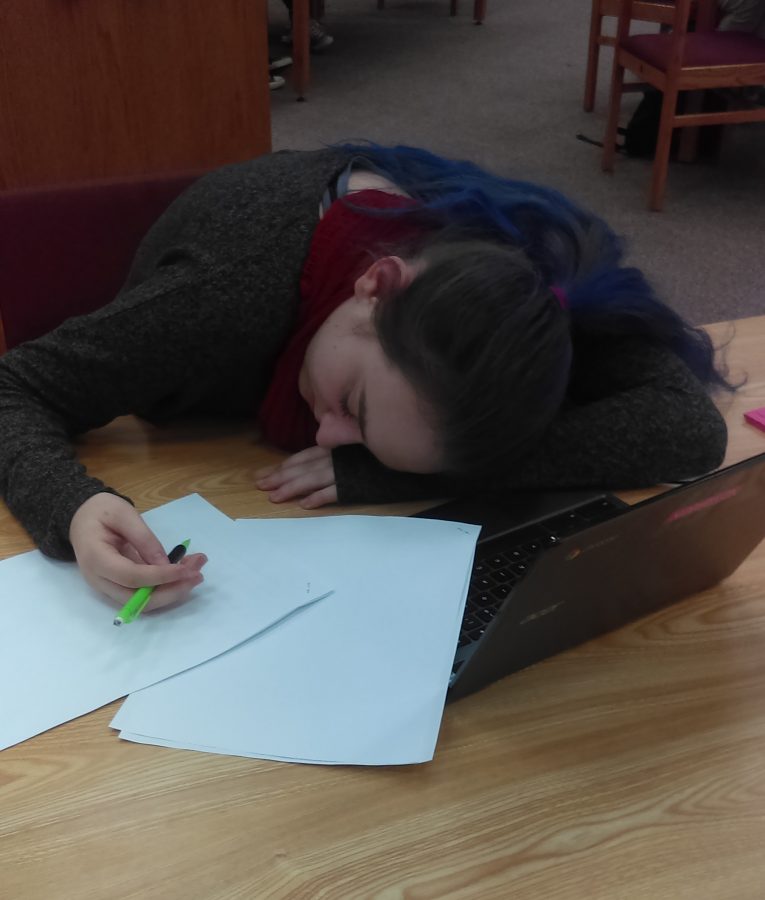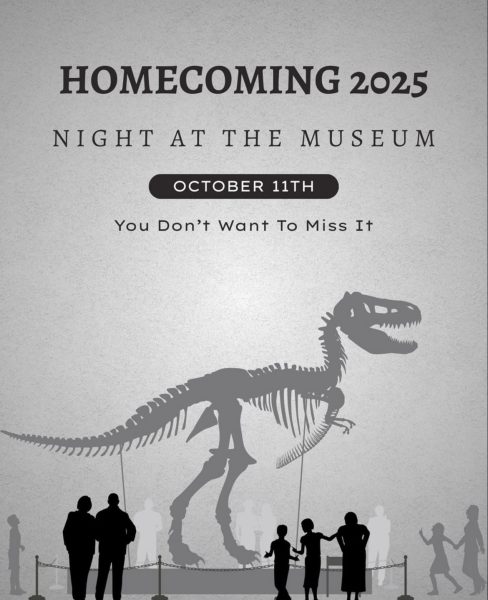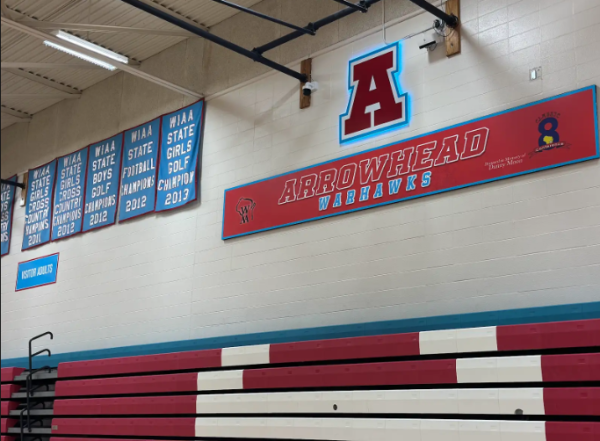Feeling Drowsy in Class? Blame Biology
Falling asleep while someone is talking is one of the biggest signs of disrespect. It shows that you are not only uninterested in the topic they’re speaking about, but also that you don’t care to feign interest either.
Yet, this seems to happen all the time in schools. Students will fall asleep either during a lecture or a video shown in class. The question becomes this: why do students repeatedly fall asleep?
At Arrowhead, sleeping during class may be due to an actual biological reason.
According to Nationwide Children’s Hospital, teens between 13 and18 years old, need between 9 and 9 ½ hours of sleep per night. However, teens on average only get about 7 to 7 ¼ hours of sleep.
Junior Rebecca Zakreski, “I definitely do not reach that required amount. I’ll be lucky if I get 7 hours of sleep, let alone 9 hours.”
Part of the cause of this sleep deprivation is the change in circadian rhythms during adolescence.
According to National Sleep Foundation, “This shift in teens’ circadian rhythm causes them to naturally feel alert later at night, making it difficult for them to fall asleep before 11:00 pm.”
Zakreski says, “On a typical night, I tend to finish my homework late, around 10:00. But afterwards, I enjoy having my own free time, so I fall asleep around 12:00. So I get about five hours of sleep since I have morning gym.”
Our circadian rhythm helps determine our state of awakeness and alertness. However, our daily life tends to conflict with this schedule. School, work, and extracurricular activities keep us from properly following our sleep signals.
Junior Skyler Phillips says, “Today I had two tests and a quiz, so I was up until like 11:00 last night studying for them. I feel like teachers always put tests and quizzes in the same week, in the same day.”
For students, this is a big issue because sometimes school schedules don’t line up with our circadian rhythm, causing us to feel tired or unalert during classes. And when listening to a lecture that seems monotone and endless, a desktop may start to look like a pretty viable pillow option.
Senior Adam Pink says, “Kids do seem to struggle staying awake in class, and it seems to be in my earlier periods. I think that schools just starts too early. If we started having school start later and end later, it would increase student performance in those classes.”
When the teacher turns off the lights to prepare for an educational video, the chances of falling asleep increases. This drowsiness can be traced back to our very own biological makeup.
According to the National Institute of General Medical Sciences, “The body’s master clock, or [suprachiasmatic nucleus] SCN, controls the production of melatonin, a hormone that makes you sleepy. Since it is located just above the optic nerves, which relay information from the eyes to the brain, the SCN receives information about incoming light. When there is less light—like at night—the SCN tells the brain to make more melatonin so you get drowsy.”
When combining all of these factors—increasing levels of melatonin in dim light, sleep deprivation, unaligned and shifted circadian rhythms, and a hectic daily schedule—it’s a no wonder why students tend to fall asleep during class.










